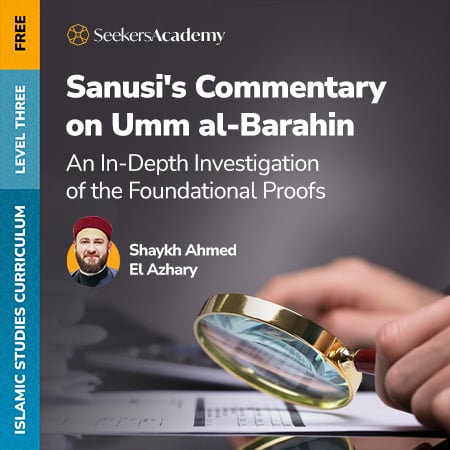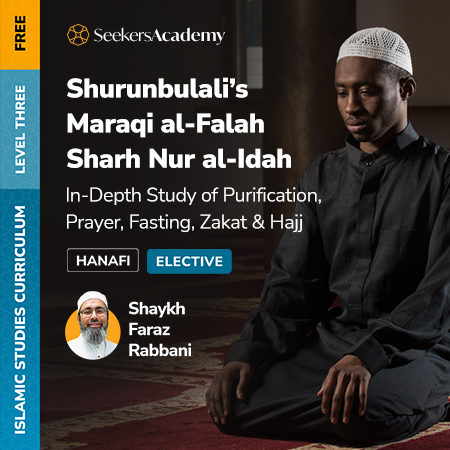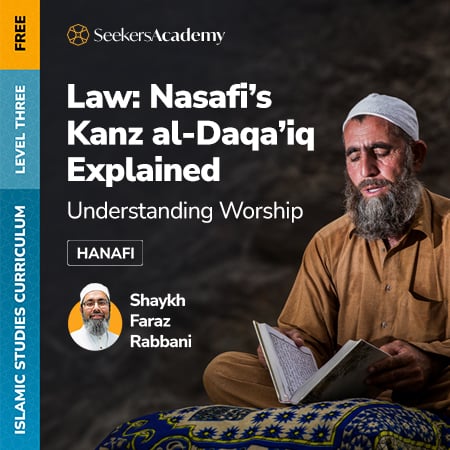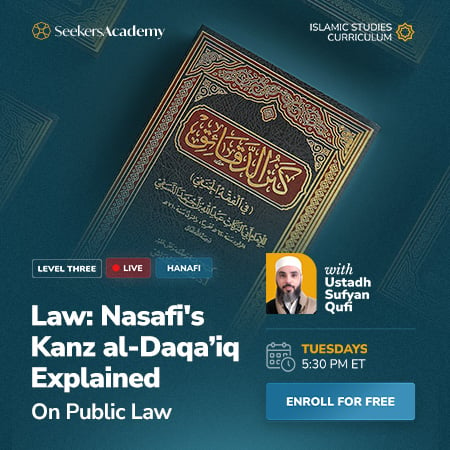
This is a Level Three course in the Islamic Studies Curriculum of SeekersGuidance. It’s a traditional word-by-word explanation of Imam al-Sanusi’s commentary on his primer Umm al-Barahin (The Foundational Proofs), which covers a distilled theological exposition of Sunni creed based on the methodical approach of the Ash`ari school.
- Teacher: Shaykh Ahmed El Azhary
Umm al-Barahin (The Foundational Proofs) of Imam al-Sanusi is one of the most fundamental primers in Islamic Theology and is considered historically as an elemental text in traditional Islamic education in the Maghreb, Egypt and al-Sham. Studied and memorized for centuries, Umm al-Barahin offers readers a structured and distilled outline of Sunni Creed, according to the methodical approach of the Ash`ari school of theology. Imam al-Sanusi in Umm al-Barahin supports the tenets of the Sunni Creed with rational and textual arguments that are free from confusion and ambiguity.
Sharh Umm al-Barahin, also known as Sharh al-Sanusiyya, is a lucid commentary written by Imam al-Sanusi himself on his primer Umm al-Barahin, in which he unpacks the essence of his theological arguments. In his commentary, Imam al-Sanusi divides his primer into passages that are followed by erudite explanation. This commentary attracted many scholars to write on it super-commentaries in which many intricate theological concepts and ideas were discussed. The commentary alongside its super-commentaries remain till this very day as a repository for late Asha`ri theological discussions.
- This course is useful for anyone who wants to understand the rational arguments related to our belief in Allah Most High and the method and nuances of Islamic Theology; to appreciate the depth and richness of the Islamic intellectual tradition; and learn the methods of thinking and analysis applied by Muslim scholars.
- This course is for adults.
- It is beneficial for students of knowledge in general and students of theology in particular.
- Explain the logical proofs for the attributes of Allah Most High.
- Break down the proofs for the existence of Allah Most High step by step.
- Explain the attributes of His Messengers (peace be upon them) and their proofs.
- Understand how all of these meanings are contained in the statement of Divine Oneness: there is no god but God.
- Understand how to unpack the terse expressions of classical Islamic texts and works on theology.
- Cultivate a deep method in thinking required from a student of knowledge.


